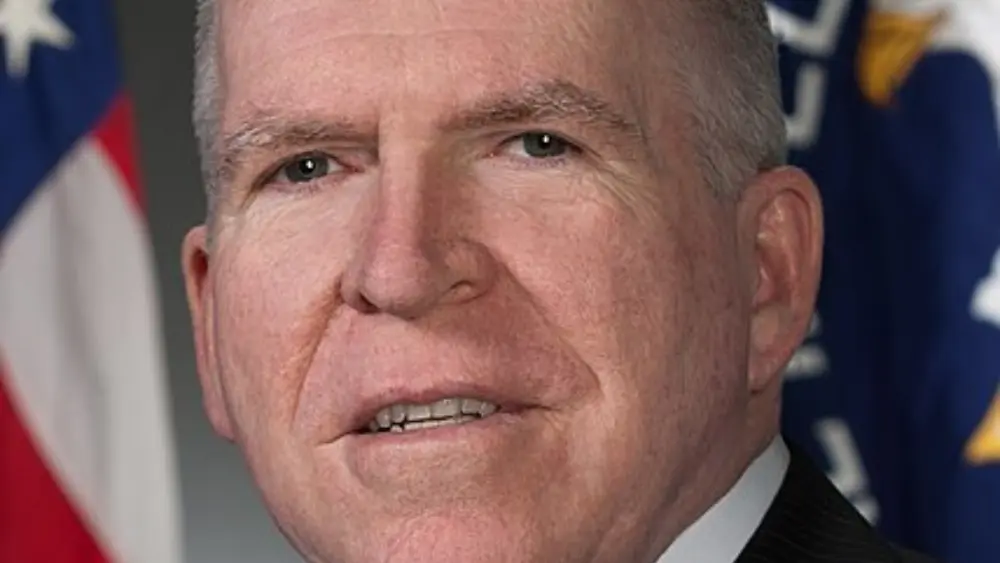John Owen Brennan, born on September 22, 1955, is an American intelligence officer and national security expert known for his significant role in the United States military and intelligence community. His tenure as the Director of the Central Intelligence Agency (CIA) saw pivotal moments, including the successful operation that led to the elimination of Osama bin Laden.
Early Life and Education: A Path to Public Service
John Brennan’s commitment to public service was evident early in his life, shaped by a combination of his upbringing and educational pursuits. Hailing from North Bergen, New Jersey, Brennan embarked on a path that would lead him to become a prominent figure in the United States intelligence community. His academic journey included the study of political science at Fordham University, laying the foundation for his future endeavors. Brennan’s commitment to understanding the complexities of the Middle East and its languages became evident during his graduate studies at the University of Texas at Austin, where he focused on Middle Eastern studies and Arabic.
The fusion of Brennan’s educational background with his passion for international affairs set the stage for a distinguished career in public service. Little did he know that his journey from academia to the heart of global intelligence would position him as a key player in shaping U.S. national security policies. Brennan’s early experiences and educational choices underscored his dedication to gaining the knowledge and expertise needed to navigate the intricate landscape of international relations, a commitment that would define his impactful career in the years to come.
John Brennan: Scholarly Background
John Brennan’s scholarly background played a pivotal role in shaping his expertise in Middle Eastern affairs, marking him as a distinguished figure in the realm of intelligence and counterterrorism. His academic journey, which included a focus on political science at Fordham University and graduate studies with a concentration on Middle Eastern studies and Arabic at the University of Texas at Austin, provided him with a deep understanding of the region’s languages, cultures, and geopolitical intricacies. This foundation became a crucial asset as Brennan transitioned into the field of intelligence, allowing him to bring a nuanced perspective to his work in assessing and addressing the complex challenges posed by the Middle East.
Brennan’s scholarly pursuits were not merely academic; they laid the groundwork for a career dedicated to public service and national security. The fusion of his academic knowledge with practical experience in intelligence marked him as a leader who could navigate the intricate landscape of international relations with a deep appreciation for the cultural nuances of the Middle East. As he progressed in his career, Brennan’s scholarly background continued to inform his approach, emphasizing the importance of understanding the multifaceted factors influencing global security and the evolving dynamics of the Middle East.
CIA Career: Rising Through the Ranks
John Brennan’s illustrious career at the Central Intelligence Agency (CIA) began in 1980, marking the inception of a journey that would see him rise through the ranks and become a key figure in the U.S. intelligence community. During his early years at the CIA, Brennan undertook various assignments in the Directorate of Operations, where he gained invaluable field experience. This exposure to the operational aspects of intelligence work allowed him to develop a practical understanding of the challenges and complexities involved in gathering crucial information to inform national security decisions.
As Brennan continued to ascend within the CIA, he transitioned to roles in the Directorate of Intelligence, where he further refined his analytical skills. These analytical responsibilities involved assessing vast amounts of information to provide nuanced insights into global developments, emerging threats, and geopolitical trends. Brennan’s diverse experiences within the CIA not only showcased his adaptability and expertise but also positioned him as a seasoned intelligence professional ready to take on increasingly significant leadership roles within the agency.
John Brennan: Counterterrorism Leadership
John Brennan’s leadership within the Central Intelligence Agency (CIA) took a significant turn as he emerged as a key figure in counterterrorism efforts. His unwavering commitment to addressing security threats and his deep understanding of intelligence matters positioned him for crucial roles in this critical domain. Brennan’s dedication to the intricacies of counterterrorism efforts became particularly evident when he assumed the role of Chief of Staff to the Director of Central Intelligence. Subsequently, in this pivotal position, he played a central role in coordinating intelligence initiatives. Additionally, his leadership was instrumental in streamlining communication within the intelligence community. In this capacity, he played a pivotal role in coordinating and managing the agency’s responses to emerging threats, ensuring a comprehensive and effective approach to safeguarding national security.
Brennan’s leadership in counterterrorism extended beyond his role as Chief of Staff. He continued to contribute to shaping policies and strategies to combat evolving threats. His expertise in the intricate world of counterterrorism made him a trusted advisor, providing insights that were instrumental in guiding intelligence operations and enhancing the nation’s capabilities to address the complexities of modern security challenges.
The Bin Laden Raid: A Defining Moment
The pinnacle of John Brennan’s career occurred during the historic and defining moment of the Bin Laden raid on May 2, 2011. Subsequently, this pivotal event solidified his reputation in the intelligence community. Moreover, it marked a watershed moment in the global fight against terrorism. Serving as the Deputy National Security Advisor for Homeland Security and Counterterrorism, Brennan played an instrumental role in orchestrating and overseeing the covert operation that ultimately led to the death of Osama bin Laden. The successful mission, carried out by U.S. Navy SEALs in Abbottabad, Pakistan, marked a significant victory in the global fight against terrorism and showcased Brennan’s leadership in coordinating complex and high-stakes operations.
Brennan’s involvement in the Bin Laden raid underscored not only his strategic acumen but also his deep understanding of counterterrorism operations. Additionally, his hands-on experience during the mission provided valuable insights into the complexities of modern counterterrorism efforts. Furthermore, the success of the operation solidified his reputation as a key figure in the intelligence community. His role in the planning and execution of this critical mission showcased his ability to navigate the intricate challenges of national security and counterterrorism, cementing his legacy as a key architect in one of the most pivotal moments in the fight against global terrorism.
John Brennan: Key Architect of the Bin Laden Raid
As the Deputy National Security Advisor for Homeland Security and Counterterrorism, Brennan played a pivotal role in orchestrating the operation that led to the demise of Osama bin Laden on May 2, 2011. His expertise in counterterrorism, cultivated over years of service at the CIA, became particularly evident during this critical mission. Furthermore, his nuanced understanding of intelligence operations played a pivotal role in the success of the mission. In addition, Brennan’s leadership qualities were crucial in coordinating the diverse elements involved. Brennan’s leadership and strategic oversight were instrumental in ensuring the success of the covert operation carried out by U.S. Navy SEALs in Abbottabad, Pakistan.
The Bin Laden raid solidified John Brennan’s reputation as a key architect in the fight against global terrorism. His ability to navigate the intricate landscape of intelligence, coordinate with military forces, and make crucial decisions in real-time underscored his effectiveness in addressing the most pressing national security challenges. The operation became a defining moment in Brennan’s career, highlighting his commitment to safeguarding the nation and his instrumental role in one of the most significant counterterrorism successes in modern history.
CIA Directorship: Navigating Intelligence Challenges
As Director of the CIA, John Brennan faced a dynamic and ever-changing landscape of intelligence challenges. His tenure from 2013 involved navigating a complex array of threats, including the rise of new terrorist organizations, cyber warfare concerns, and the continued effort to adapt intelligence practices to an increasingly digital world. Brennan focused on modernizing the agency’s capabilities, recognizing the importance of staying ahead of technological advancements to effectively gather and analyze intelligence.
Under Brennan’s leadership, the CIA continued its pursuit of counterterrorism initiatives while also addressing emerging issues such as cybersecurity. Brennan’s strategic vision aimed at ensuring that the CIA remained at the forefront of global intelligence efforts. His ability to navigate the intricacies of the intelligence community and respond to evolving threats showcased his commitment to safeguarding national security during a time of rapid technological change and geopolitical challenges. Moreover, his astute leadership in adapting to emerging security landscapes demonstrated a keen understanding of the dynamic nature of global threats.
John Brennan: Modernizing Intelligence Practices
John Brennan’s tenure as CIA Director was marked by a commitment to modernizing intelligence practices in response to the challenges of the digital age. Recognizing the increasing importance of technology in the intelligence landscape, Brennan prioritized initiatives aimed at enhancing the agency’s capabilities in areas such as cyber warfare, data analysis, and information gathering. His emphasis on staying ahead of technological advancements reflected a strategic vision to equip the CIA with the tools necessary to effectively address emerging threats in the rapidly evolving digital landscape.
Under Brennan’s leadership, the CIA embraced modern technologies and approaches to intelligence gathering. This included efforts to enhance cybersecurity measures to safeguard sensitive information and counter potential cyber threats. By championing these modernization initiatives, Brennan aimed to ensure that the CIA could effectively meet the intelligence challenges of the 21st century, demonstrating his commitment to maintaining the agency’s relevance and effectiveness in an increasingly digital and interconnected world.

Post-Government Career: Continued Advocacy and Analysis
Post his government career, John Brennan seamlessly transitioned into a role as a prominent commentator and analyst, offering valuable insights into intelligence and foreign policy matters. His deep understanding of global events and national security dynamics made him a sought-after voice in the public discourse. Brennan’s ability to distill complex issues and communicate them to a broader audience showcased his expertise and his commitment to fostering public understanding of critical matters. Moreover, his articulate and accessible approach not only bridged the gap between intricate intelligence matters and public awareness but also underscored the importance of transparency in governance.
In addition to his role as a commentator, Brennan remained an advocate for responsible and informed national security policies. Furthermore, his continued dedication to the cause exemplified a steadfast commitment to upholding the principles of transparency and accountability. Additionally, he played a pivotal role in shaping public discourse on security matters. Through public engagements, writings, and media appearances, he continued to contribute to the ongoing conversations surrounding intelligence, counterterrorism, and international relations. Brennan’s post-government career demonstrated his dedication to shaping discussions on matters of national importance and ensuring that the public remained informed about the challenges and opportunities in the realm of security and intelligence.











